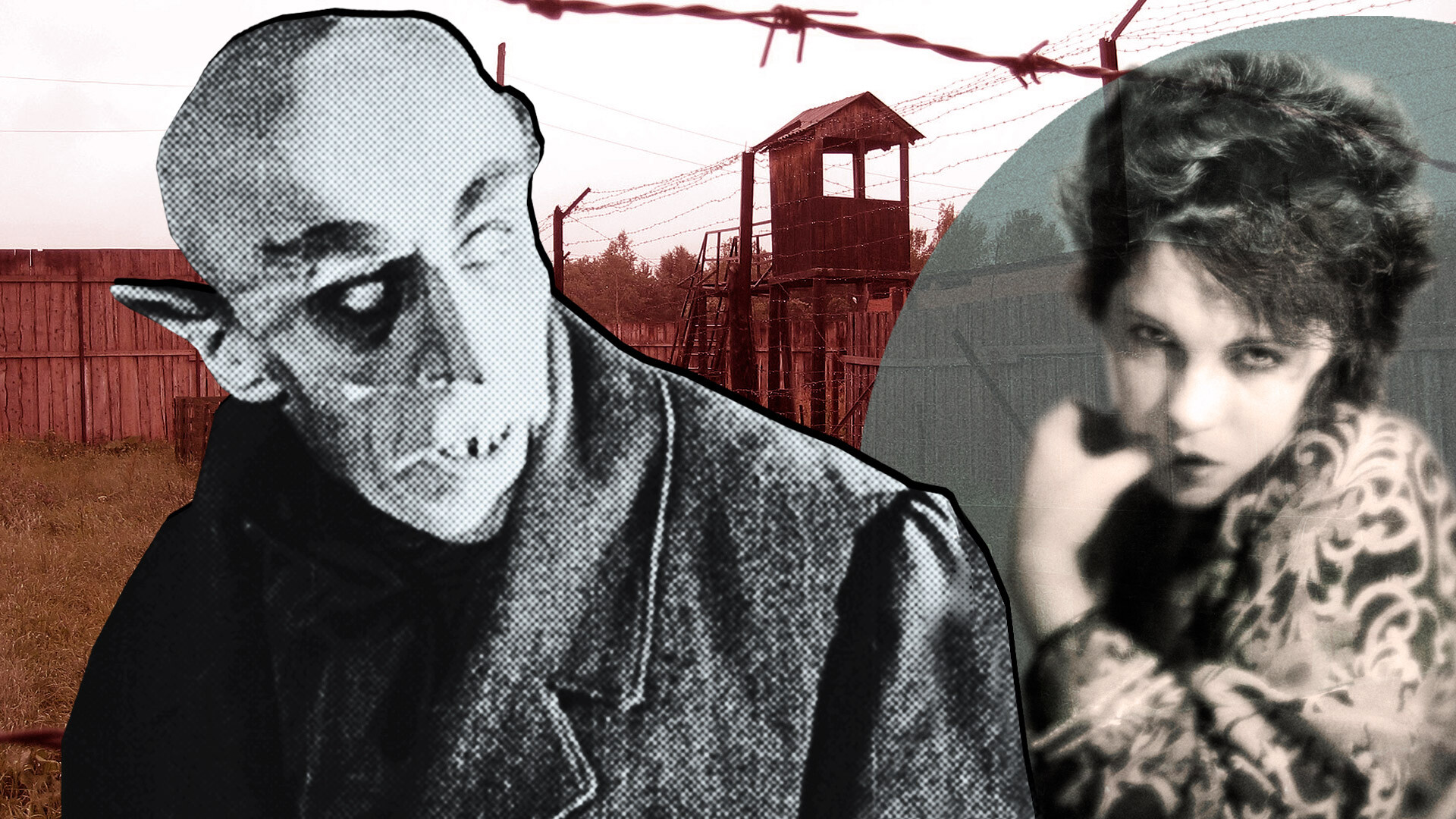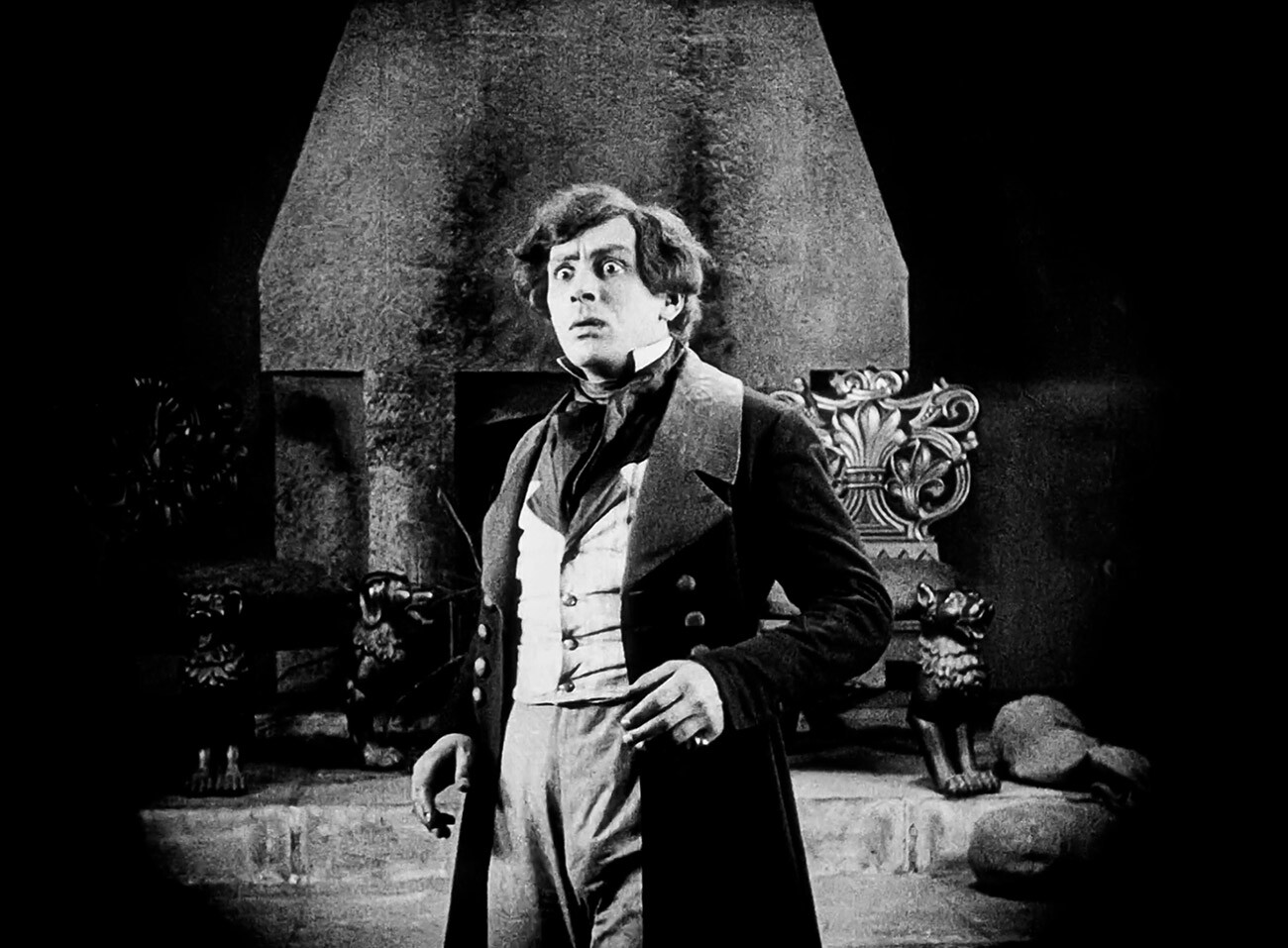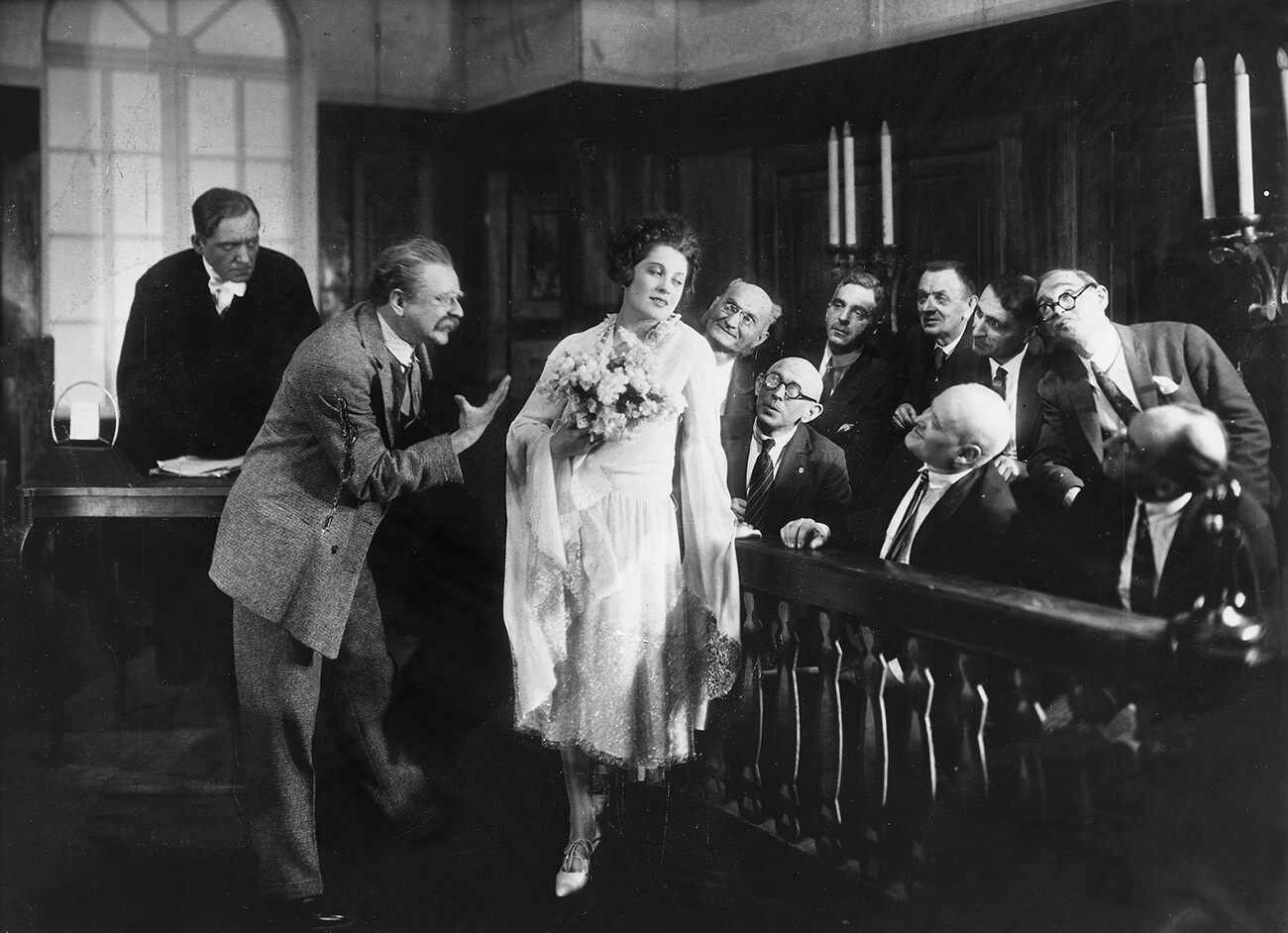
In 1922, a true cinematographic masterpiece was filmed in Germany, which had a tremendous influence on the development of world culture. Few movies feature a vampire as creepy as Count Orlok in ‘Nosferatu: A Symphony of Horror’ directed by Friedrich Murnau. Even today, he still looks impressive.
‘Nosferatu’ was the first adaptation (though an unauthorized one) of Bram Stoker’s novel ‘Dracula’, which made all the actors involved eternally famous. One of them was Gustav von Wangenheim, who played Jonathan Harker (called Thomas Hutter in the movie).

Gustav von Wangenheim in ‘Nosferatu’.
Legion MediaNot many know that after ‘Nosferatu’, the life of a descendant of an ancient German aristocratic family of von Wangenheims became closely linked to the Soviet Union, the ‘Great Purge’ and the death of one of the most beautiful women in Germany.
Despite his noble roots, Gustav gravitated toward socialism and joined the German Communist Party almost immediately after the release of his most famous movie. The actor, however, was in no hurry to renounce the pleasures of his high-class life and liked to call himself a “dandy communist”.
In 1933, after the Nazis came to power, Gustav fled the country and soon found himself in Moscow. He continued his creative work here: he wrote essays and plays and founded a theater troupe called Kolonne Links (Left Column), consisting of German émigré actors like himself.

Gustav von Wangenheim.
Abraham Pisarek/Ullstein bild/Getty ImagesIn 1936, Gustav von Wangenheim directed an anti-Nazi movie called ‘The Fighters’. Interestingly, he brought in Alexander Granach, another actor from the ‘Nosferatu’ cast, who had played the role of Knock in the 1922 movie (Renfield in the book).
The most unappealing episode from the life of the German aristocrat in the USSR was the case of the German Communist Russian teacher Anatol Becker and his wife, actress Carola Neher.
Like Gustav von Wangenheim, the couple fled Germany to escape the Nazis. They took refuge in the USSR, not knowing what a terrible fate awaited them there.

Carola Neher in 'Chicago'.
Zander & Labisch/Ullstein bild/Getty ImagesCarola Neher, one of Germany’s leading actresses, was the muse of the playwright Bertolt Brecht and, in the late 1920s, she acted in ‘The Threepenny Opera’, based on his play. Majestic, athletic, fashionable and daring, she was a “femme fatale” and was considered by many to be one of the most beautiful women in Germany.
In Moscow, Neher was playing in Gustav von Wangenheim’s Left Column troupe when she and her husband were caught up in the whirlwind of mass repressions in 1936. The couple was accused of being supporters of Lev Trotsky, who had already fallen into disgrace. A complaint denouncing “elements of society poisoned by Trotskyism” was filed by the “dandy communist”.
Becker was shot in 1937 and Neher was sentenced to ten years in camps. Once in prison, the actress never lost her spirit. “She constantly tried to keep up her appearance, took care of herself and regularly did gymnastics. Unlike the rest of us, she still had smooth, beautiful skin, despite the terrible conditions that made people age quickly,” recalled Carola’s cellmate Hilda Duti.

Carola Neher.
Wolff von Gudenberg; Rolf Mahrenholz/Ullstein bild/Getty ImagesOn June 26, 1942, Neher died in Sol-Iletsk prison near Orenburg from typhoid fever at the age of 41. Seventeen years later, she and her husband were fully rehabilitated.
Gustav von Wangenheim’s life was quite prosperous. After World War II, he returned to Berlin, where he was the director of the Deutsches Theater for a while and then worked as a screenwriter and director of feature movies for many years.
Dear readers,
Our website and social media accounts are under threat of being restricted or banned, due to the current circumstances. So, to keep up with our latest content, simply do the following:
If using any of Russia Beyond's content, partly or in full, always provide an active hyperlink to the original material.
Subscribe
to our newsletter!
Get the week's best stories straight to your inbox